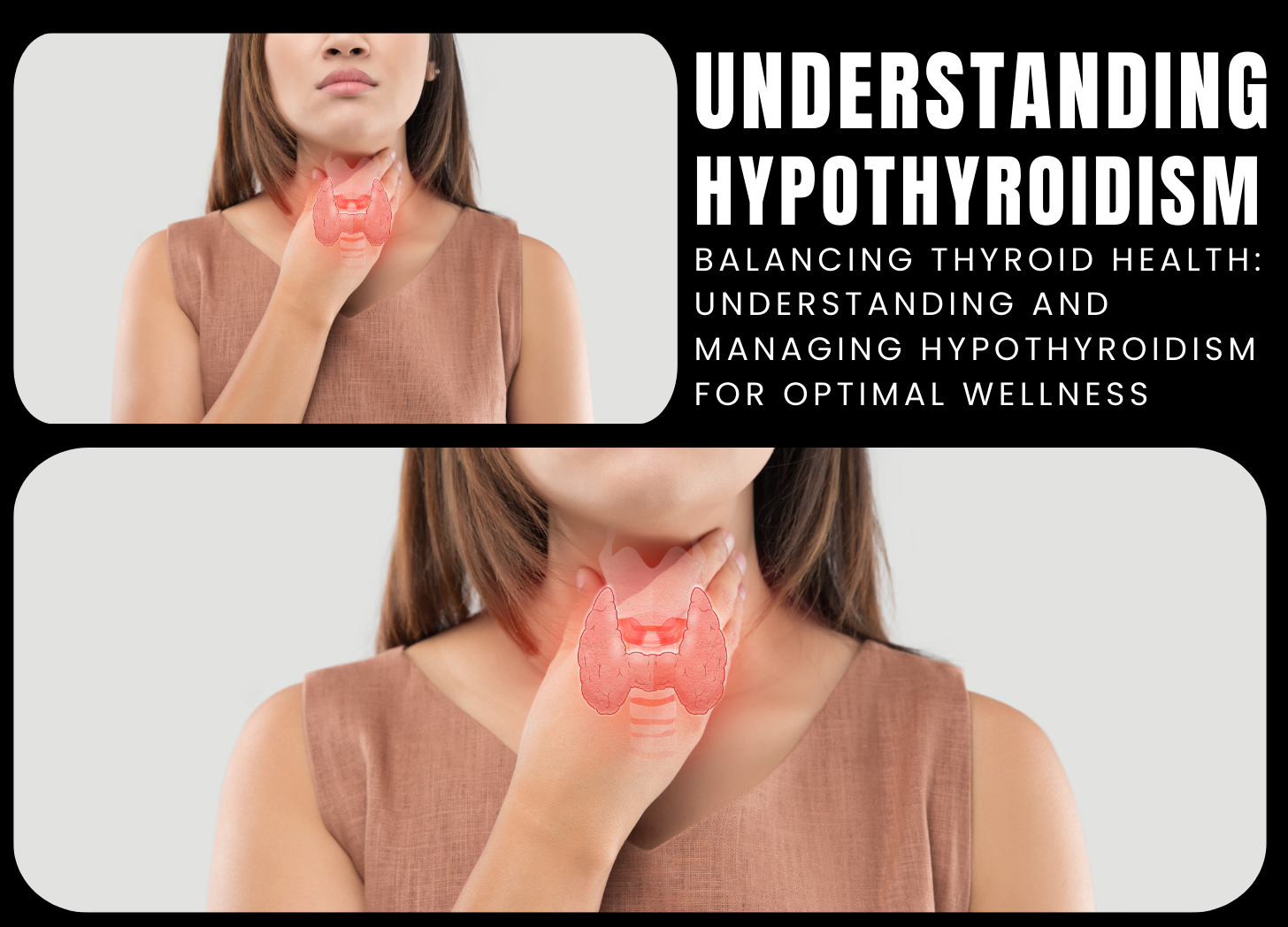Contact Us
Contact Us

Hypothyroidism is a common endocrine condition defined by an underactive thyroid gland that produces insufficient thyroid hormones to meet the body’s requirements. Thyroid hormones control metabolism, energy production, body temperature, heart rate, and other essential processes. Low thyroid hormone levels can cause a variety of symptoms and consequences impacting several organ systems.
The most prevalent cause of hypothyroidism is autoimmune thyroiditis, also known as Hashimoto’s thyroiditis, which occurs when the immune system erroneously assaults the thyroid gland, resulting in inflammation and damage. Other causes of hypothyroidism include thyroidectomy, radiation therapy to the neck or chest, certain drugs (including lithium or amiodarone), iodine shortage, congenital thyroid abnormalities, and pituitary gland diseases.
The symptoms of hypothyroidism might vary based on the severity of thyroid hormone shortage and personal factors such as age, gender, and overall health. Common symptoms in women include fatigue, weight gain, cold intolerance, dry skin, thinning hair, constipation, muscle weakness, joint pain, depression, memory issues, and monthly abnormalities. Untreated hypothyroidism can result in myxedema, a rare but potentially fatal illness marked by intense exhaustion, low body temperature, slow heart rate, and impaired mental status.
Hypothyroidism is usually diagnosed using a combination of medical history, physical examination, and laboratory testing that evaluate thyroid hormone levels in the blood. The most frequent blood tests used to detect hypothyroidism are thyroid-stimulating hormone (TSH), free thyroxine (T4), and, in some cases, triiodothyronine (T3) levels. Primary hypothyroidism is characterized by elevated TSH levels and low T4 levels, but low TSH levels with low T4 levels may indicate secondary or central hypothyroidism caused by pituitary gland failure.
To restore thyroid hormone levels to normal and relieve symptoms, hypothyroidism is typically treated with lifelong thyroid hormone replacement treatment. The most generally prescribed treatment for hypothyroidism is levothyroxine, a synthetic form of the thyroxine (T4) hormone that is taken orally once daily. Levothyroxine medication is individualized to each individual’s age, weight, and thyroid hormone levels, with thyroid function monitored on a regular basis to alter dosage as needed.
In addition to medicine, lifestyle changes such as eating a nutritious diet, exercising regularly, getting enough sleep, and managing stress can help support thyroid function and general health. Individuals with hypothyroidism must strictly stick to their recommended drug regimen, attend regular follow-up meetings with their healthcare practitioner, and promptly report any changes in symptoms or side effects.
In conclusion, hypothyroidism is a common endocrine condition defined by an underactive thyroid gland and insufficient thyroid hormone production. While hypothyroidism can cause a variety of symptoms and difficulties, it is treatable with thyroid hormone replacement therapy and lifestyle changes. Individuals with hypothyroidism can have healthy and fulfilling lives if they work closely with their healthcare providers and follow treatment guidelines.
References:
1.American Thyroid Association. (2022). Hypothyroidism (Underactive Thyroid). Retrieved from https://www.thyroid.org/hypothyroidism/
2.Mayo Clinic. (2022). Hypothyroidism (Underactive Thyroid). Retrieved from https://www.mayoclinic.org/diseases-conditions/hypothyroidism/symptoms-causes/syc-20350284
Post a Comment